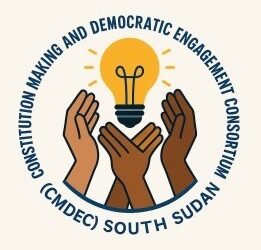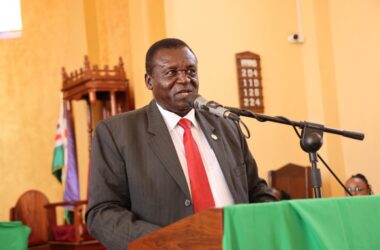By Kei Emmanuel Duku
A prominent civil society leader has described a recent visit of a high-level government officials to Bentiu Oil refinery, as “political tourism”.
Executive Director of Community Empowerment for Progress Organization (CEPO), Edmund Yakani said these visits lack genuine commitment to reconstruction of the facility.
According to Yakani, the political tours, unlikely yield tangible results towards rehabilitation of the oil refinery in Unity State.
Yakani’s remarks followed Vice President Taban Deng Gai’s recent inspection visit to the Bentiu Oil Refinery.
Gai, who chairs the infrastructure cluster in the Revitalized Transitional Government of National Unity, toured the oil-rich area in the north of the country.
Drawing a similarity to what he described as unproductive visits by politicians to Ramciel in Lakes State, the proposed new capital city of South Sudan, Yakani lamented the tendency of leaders to frequent sites without delivering concrete and visible outcomes.
According to Yakani, the primary obstacle to the refinery’s operationalization remains the persistent armed violence that has plagued the country since 2013. He unequivocally blamed the “political and gun class” for this ongoing instability.
Yakani highlighted the significant economic loss resulting from the refinery’s destruction during the 2013 conflict. The Bentiu Oil Refinery had a production capacity of 10,000 barrels of oil per day, a crucial revenue stream for the nation.
He further alleged that some political elites have diverted funds generated from oil sales to fuel further violence, thereby exacerbating the suffering of ordinary citizens.
“As long as armed violence persists, the development of this country will remain a low priority for our political leaders, and the economy will continue to suffer due to widespread corruption at all levels of government. The situation at the Bentiu Refinery is a clear example of this,” Yakani stated.
He emphasized that the Bentiu oil refinery will not contribute to reducing domestic oil prices until the country’s leaders prioritize ending armed conflict.
Yakani explained that the root causes of the nation’s armed violence lie in the power struggle among political factions and a lack of respect for the peaceful transfer of power. He criticized the role of armed individuals who have become a “curse” to the country and its natural resources, including oil.
“We have witnessed numerous visits to this oil refinery and heard countless statements from leaders about its importance. However, making this national oil refinery, with its 10,000 barrel per day capacity, operational is essential to help reduce oil prices for domestic consumption,” he added.
Yakani urged leaders to prioritize dialogue as a means of resolving current political differences and grievances, emphasizing that the continued use of violence has significantly hindered the country’s economic growth.
He attributed this to ethnic-driven politics characterized by deep distrust and a lack of confidence among political elites. He warned that this trend would have severe long-term consequences.
Yakani concluded by stressing the need for the country’s top leadership to adopt dialogue with a genuine commitment to trust and honesty. He identified political indiscipline and immaturity as key factors driving the country towards violence rather than peace.
“No national project will succeed as long as there is a significant deficit of trust and confidence among political actors, leading to the use of armed struggle to address political discontent. Embracing political discipline and maturity, where dialogue is the primary tool for resolving political differences, is imperative,” Yakani asserted.




